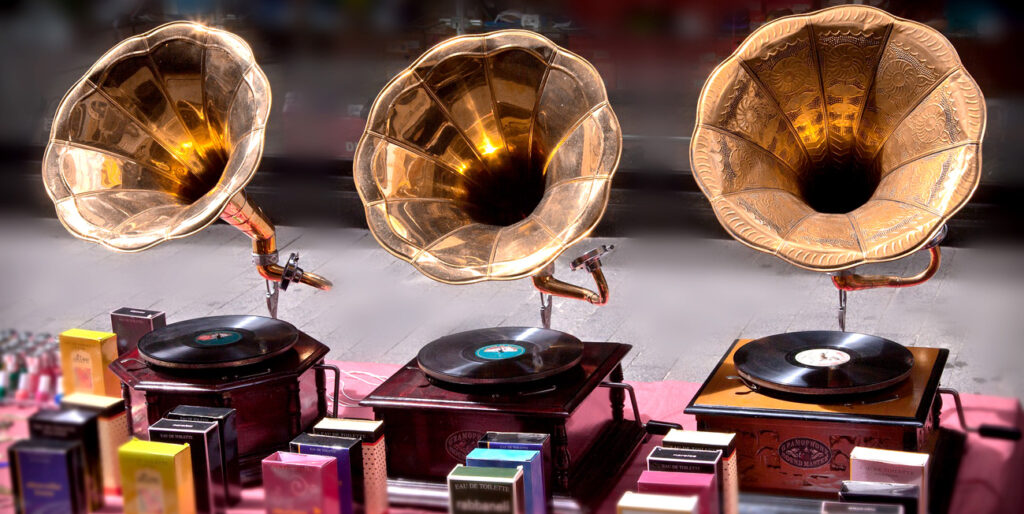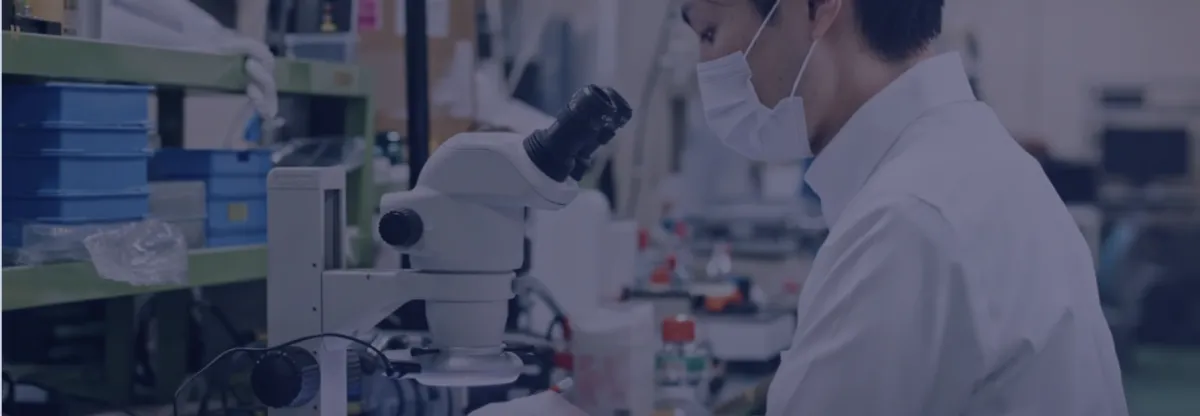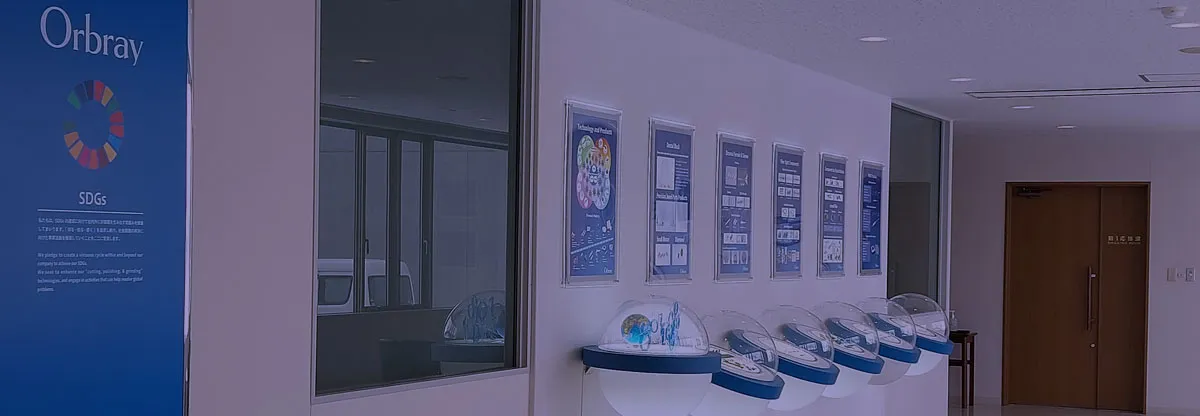4 Channel Record and Shibata Stylus
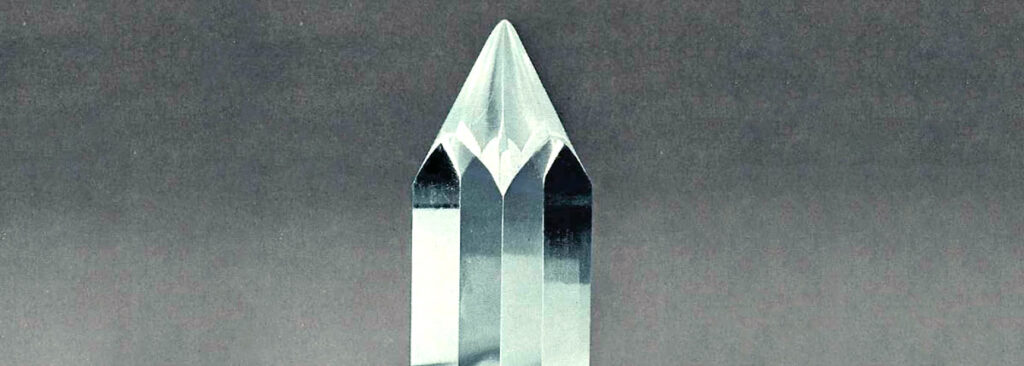
Table of contents [close]
From 2 Channel Stereophonic Record to 4channel’s
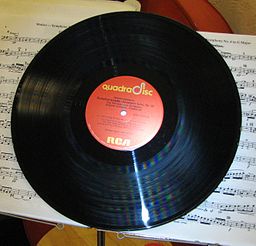
Dream of mankind became bigger more and more. Time had been changed from 2 channel stereophonic record to 4channel’s. After achieving the practical use of stereophonic record, the quest of high-fidelity reproduction involving the factor of an acoustic field had been continued.
And the appearance of 4ch record at last!
4 signals were inscribed onto 1 groove and those to be transformed by decoder for listening. We could have a great experience of an acoustic field we never experienced before. However, the method varied from company to company and which had not been standardized. Handling difficulty is the shortcomings.
Shibata stylus

The greatest inheritance of 4ch record is that Shibata stylus. The tip configuration is as shown. Shibata stylus was designed to make a line contact. Contact area with sound groove expanded. Even if contact area expanded, the frictional coefficient was reduced due to the line touching and able to pull the signal of minimum amplitude. It could trace to wide band range possible with less distortion. Namely, it attributed to the life of record longer along with stylus.
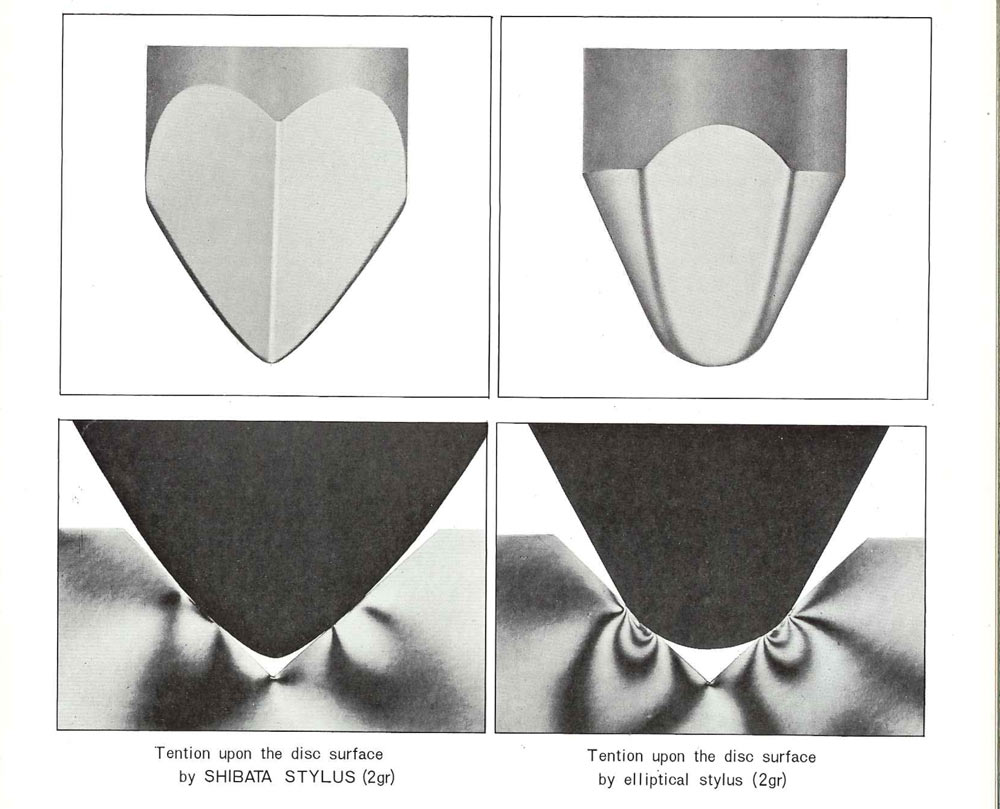
The explanation of the record needle is also available on this page.
Stylus Tip
-
History of Stylus Tip and Gramophone Record

-
What is an audio accessory? An overview and detailed explanation of products
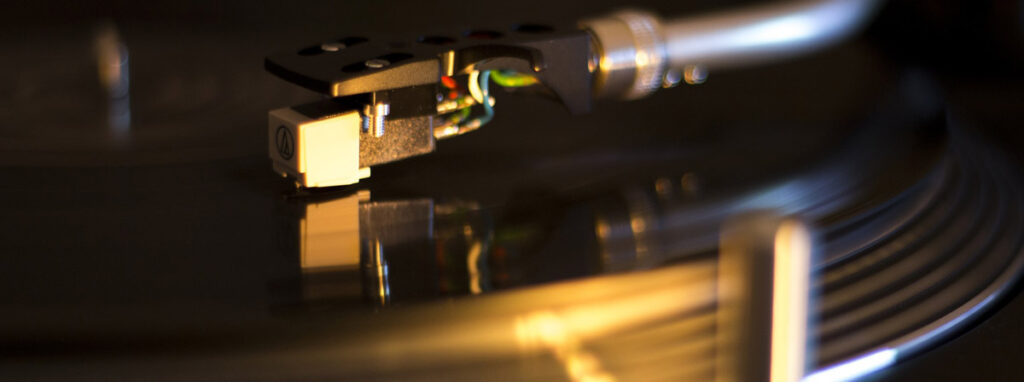
-
What is an audio accessory? An overview and detailed explanation of products [Part 2]
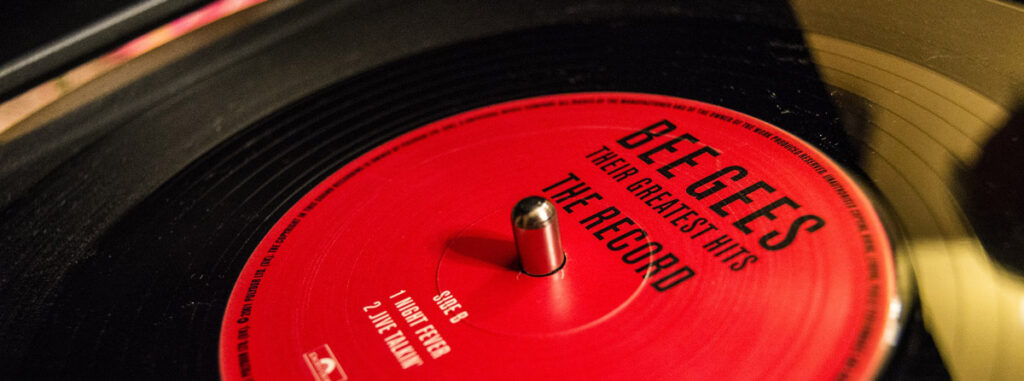
-
What are Audio isolation feet? Overview and Effects

-
Stereophonic Record and Elliptical Stylus
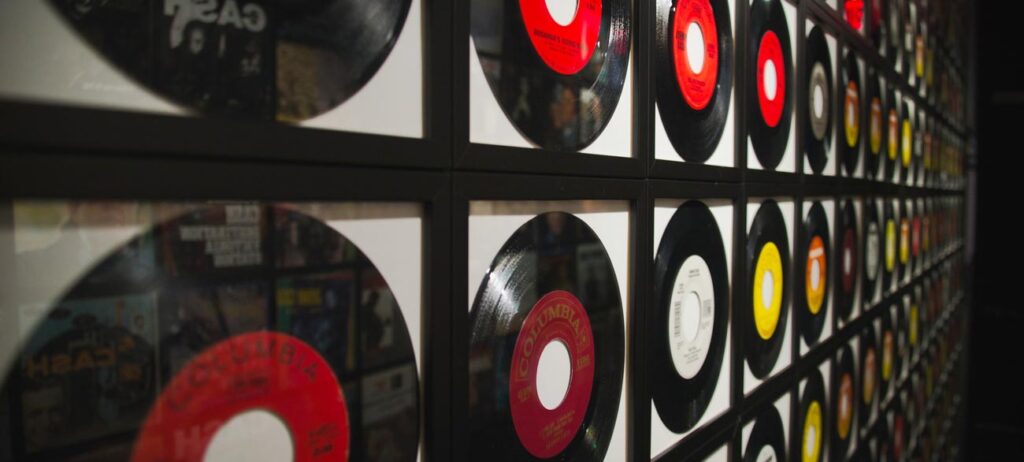
-
Stylus in the Age of SP
